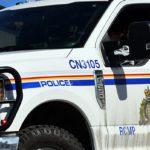Home »

Beware government secrecy
Op-Ed Commentary
Every British Columbian should be nervous, and irritated, by the never-ending secrecy demonstrated by health officials. We are talking about COVID-19, where it is, and how we should be dealing with it.
The withholding of information is characteristic of governments, B.C. being no exception. It is a widespread, long standing practice for government to keep the public in the dark about certain issues, or the consequences of some of their actions and agendas, ostensibly because we can’t be trusted to deal with it “properly,” that is, government fears being unable to control the publics behaviour.
We could go into extensive discussion of this fundamental failing of government, and by the latter I mean elected officials like Adrian Dix, or civil servants like Dr. Bonnie Henry. This penchant for holding power and influence in government hands is widely practiced by every government ministry and department and is further aggravated by a Freedom of Information Act that serves no purpose other than to protect governments self-perceived right to control information. I might add that all the information they guard is obtained by people and programs that taxpayers fund.
But let’s stick with the health issue right now. Three quarters of the province are covered by two Health Authority Districts, meaning something might be going on in Prince Rupert but it might be in Prince George instead. Of course we all want to abide by the distancing and precautionary rules now laid out for safeguarding people, and many citizens are doing just that, but I fail to see the benefit of keeping people in the dark about where cases of COVID-19 are; to me it’s a principle, one with real consequences, like not letting people know where a forest fire might be.
Widespread testing for the virus would be hugely beneficial in this respect, provided the results were made public on a timely basis; that would serve to calm citizens fears.
There will always be a range of response from people but knowing you are in imminent danger heightens attention to detail, whereas generalizations suppress response. The reality is people knowingly entering into an engagement prepare more and experience a heightened sense of readiness.
Take a look at face mask use; everyone sees the severity of the disease in China or Korea simply by seeing pictures of everyone – yes, everyone – wearing a face mask. Show up without one, and you’ll know it. So why is it Canadians think we are somehow “above” mask wearing? I argue it’s partly the fault of health officials, who have consistently been slow responding to this pandemic until pushed by reality. Why not a forceful directive on this improvement?
Health authorities have defended their secrecy by alluding to “privacy” concerns. Really? You and I are in danger, and someone’s privacy is more important than that of people who may be killed or seriously injured? It suggests that being able to withhold information is the fundamental cause of this political allegiance to privacy, not protecting Joe or Jane citizen.
And how does this translate into and reconcile with exposing senior living facilities to public and media scrutiny? Are they not entitled to “privacy”? Under these circumstances, I’d say no, but then what’s good for the goose is good for the gander, as they say. Not reporting everyone else with COVID-19 is prejudicial, and exposes people to threats they may be, and should be, immediately aware of. Sounds like officials are using a two-faced coin.
I understand that there are some people who don’t give a damn about information or evidence. These people tend to be a threat to societies well-being; being uninformed won’t change their behaviour. But there are many more people who do care about this situation, and they are entitled to be informed regardless of how they may respond.
Government obviously has a role to play in this critical situation, but withholding information from citizens is not one of them.
– Dr. Brian L. Horejsi is a wildlife and forest ecologist and a resident of B.C. He writes about environmental affairs, public resource management and governance and its entrenched legal and social bias.








